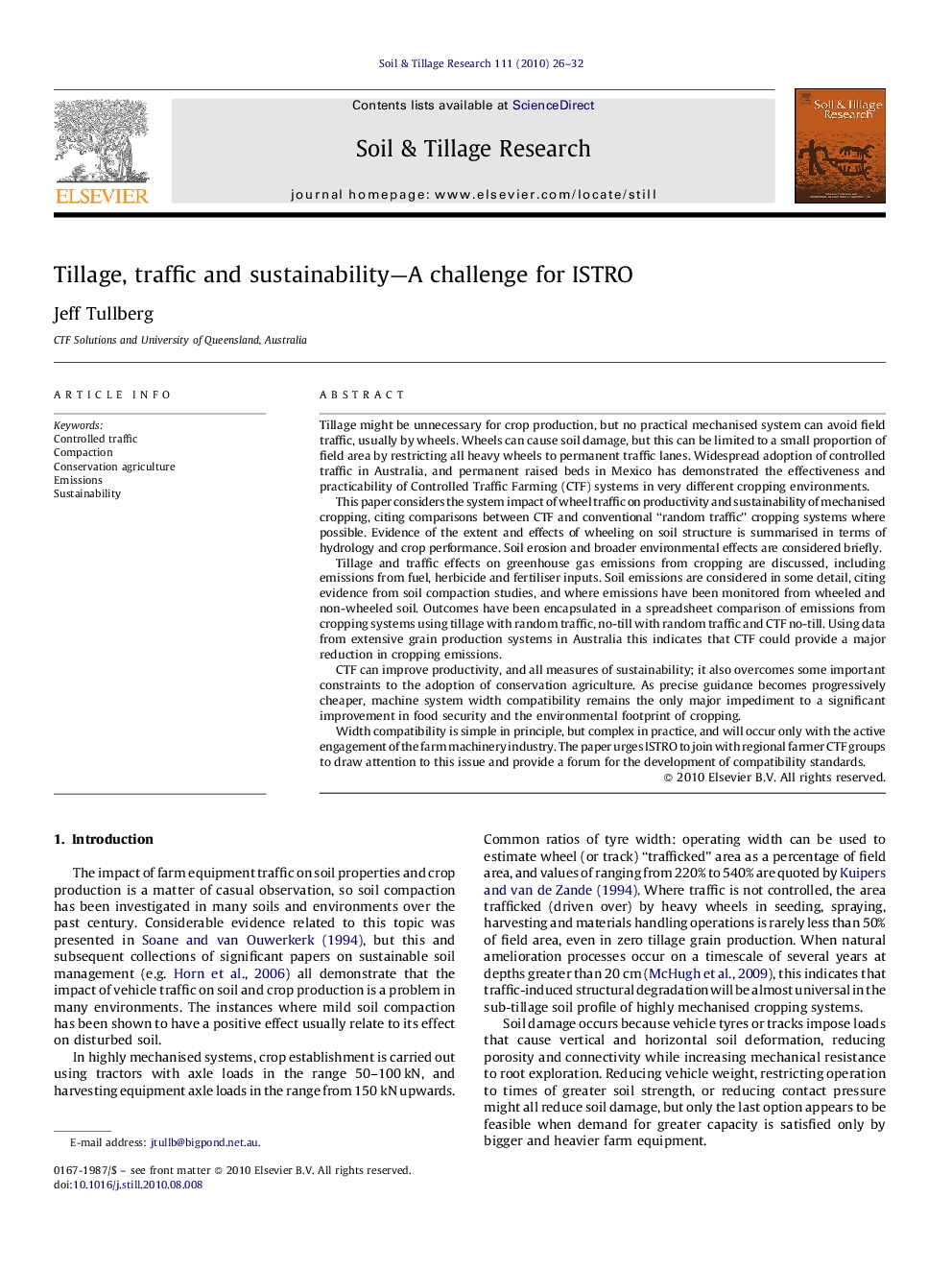| کد مقاله | کد نشریه | سال انتشار | مقاله انگلیسی | نسخه تمام متن |
|---|---|---|---|---|
| 306110 | 513073 | 2010 | 7 صفحه PDF | دانلود رایگان |

Tillage might be unnecessary for crop production, but no practical mechanised system can avoid field traffic, usually by wheels. Wheels can cause soil damage, but this can be limited to a small proportion of field area by restricting all heavy wheels to permanent traffic lanes. Widespread adoption of controlled traffic in Australia, and permanent raised beds in Mexico has demonstrated the effectiveness and practicability of Controlled Traffic Farming (CTF) systems in very different cropping environments.This paper considers the system impact of wheel traffic on productivity and sustainability of mechanised cropping, citing comparisons between CTF and conventional “random traffic” cropping systems where possible. Evidence of the extent and effects of wheeling on soil structure is summarised in terms of hydrology and crop performance. Soil erosion and broader environmental effects are considered briefly.Tillage and traffic effects on greenhouse gas emissions from cropping are discussed, including emissions from fuel, herbicide and fertiliser inputs. Soil emissions are considered in some detail, citing evidence from soil compaction studies, and where emissions have been monitored from wheeled and non-wheeled soil. Outcomes have been encapsulated in a spreadsheet comparison of emissions from cropping systems using tillage with random traffic, no-till with random traffic and CTF no-till. Using data from extensive grain production systems in Australia this indicates that CTF could provide a major reduction in cropping emissions.CTF can improve productivity, and all measures of sustainability; it also overcomes some important constraints to the adoption of conservation agriculture. As precise guidance becomes progressively cheaper, machine system width compatibility remains the only major impediment to a significant improvement in food security and the environmental footprint of cropping.Width compatibility is simple in principle, but complex in practice, and will occur only with the active engagement of the farm machinery industry. The paper urges ISTRO to join with regional farmer CTF groups to draw attention to this issue and provide a forum for the development of compatibility standards.
Research highlights▶ Random wheel traffic inhibits porosity and productivity by reducing infiltration, plant available water capacity and soil health. ▶ Random field traffic by heavy wheels reduces productivity and sustainability. ▶ Infiltration, plant available water capacity and soil health improve when traffic is controlled. ▶ Controlled traffic with more precise inputs will reduces soil emissions.
Journal: Soil and Tillage Research - Volume 111, Issue 1, December 2010, Pages 26–32